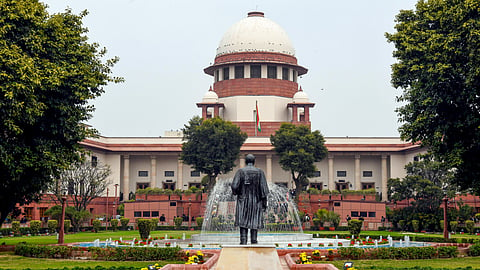

Recent broadsides against the judiciary by Vice President Jagdeep Dhankhar show how some of the highest court’s interventions touched a raw nerve among the ruling class. One of the provocations was the tight timelines set by a Supreme Court bench for the president and governors to give assent to bills, which was not specified in Article 200 of the Constitution. The court invoked its plenary powers under Article 142 to plug that gap in Article 200, saying there was no provision for a pocket veto—sitting on legislation—or absolute veto in the statute. Later, Rajya Sabha member and BJP loudmouth Nishikant Dubey also went ballistic over searching questions posed by another SC bench led by Chief Justice Sanjiv Khanna against the recent Waqf (Amendment) Act. For example, the Act axed the ‘waqf by use’ provision for properties that lack documentation to establish ownership. But the judges pointed out that paperwork might not be available for waqfs that were 200-300 years old.
Dubey went on to rant that the CJI was responsible for all ‘civil wars’ in the country, which drew calls for hauling him up for contempt of court. He perhaps took the bench’s sharp scrutiny personally because the legislation that struggled to find a cogent defence in court was vetted by a joint parliamentary committee he was on. He also indulged in name-calling of former Election Commissioner S Y Quraishi for the latter’s observation that the waqf amendments were aimed at grabbing Muslim lands. All that nastiness prompted the future SC Chief Justice B R Gavai to quip in open court, “as it is, we are criticised that we are interfering with the executive functions, legislative functions”.
Most people agree that waqf mismanagement is rampant and needs to be dealt with swiftly and firmly. But creating provisions for non-Muslims in waqf institutions is a needless poke that fosters distrust. For holders of high constitutional positions—ceremonial or not—being circumspect in public pronouncements and not indulging in partisanship are virtues worth practising. Demeaning the judiciary harms a vital pillar of constitutional democracy.